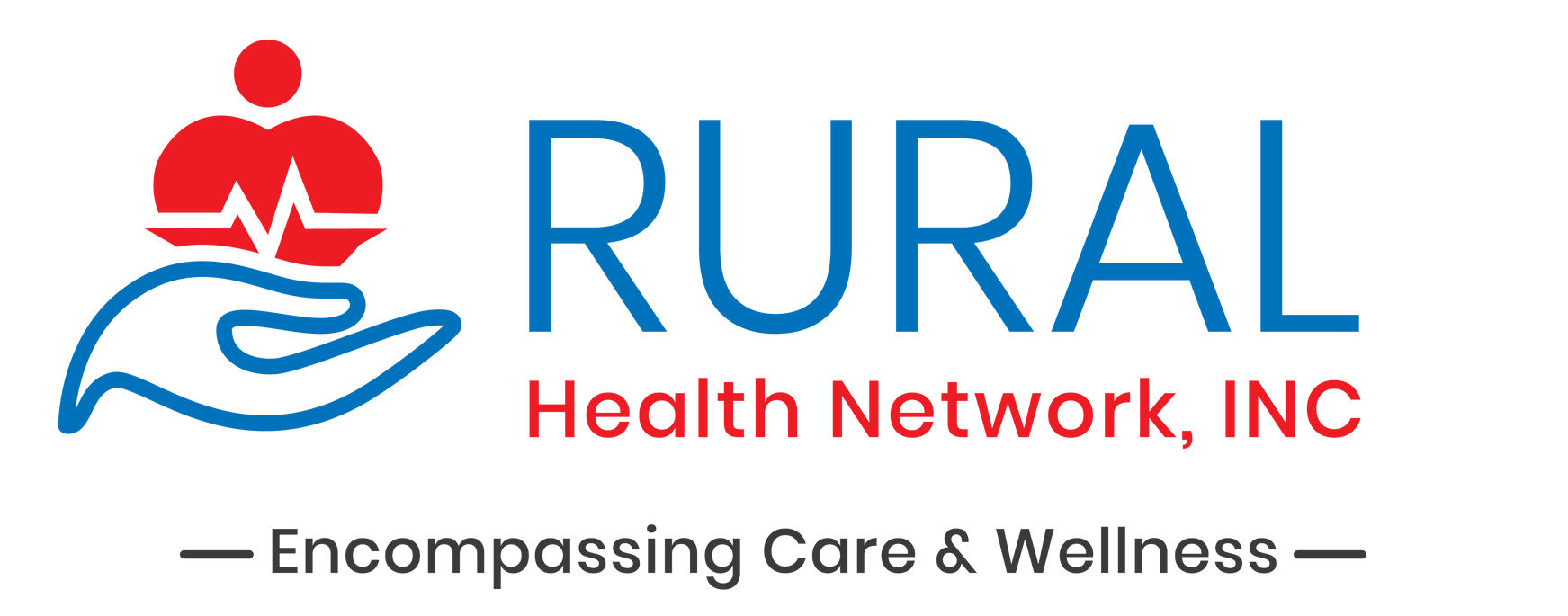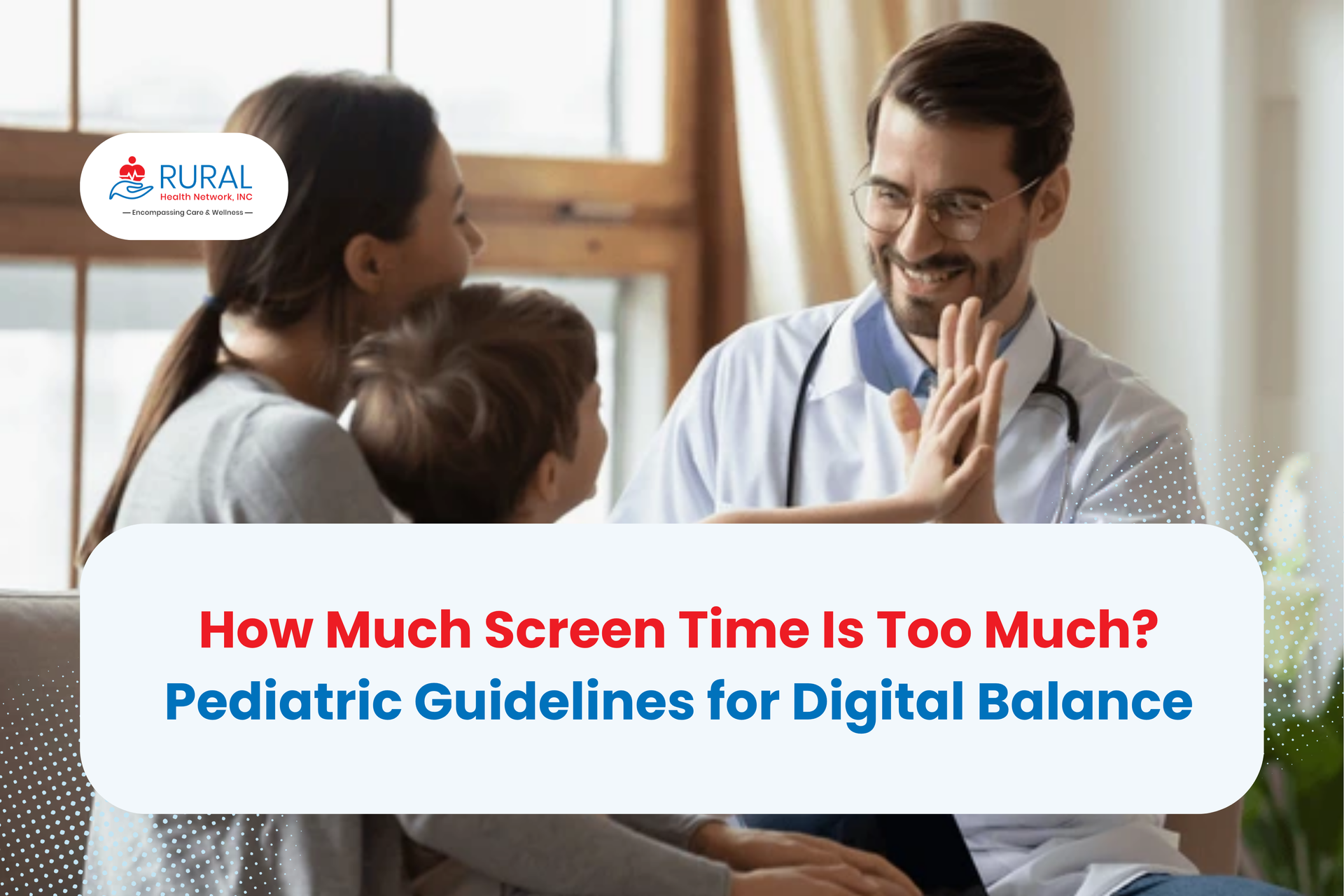It’s a beautiful Sunday morning, and you’re watching your 4-year-old daughter play in the backyard. As she runs around chasing butterflies, you notice she seems to stumble more often than usual. She’s always been a bit clumsy (most children are), but something feels different today.
A small worry starts to grow in the back of your mind. Is everything okay with your child's development?
As parents, it's normal to feel concerned when something seems off. Fortunately, there are a variety of health screenings and tests that help identify concerns in the early stages so you can give your child the best chance at growing up healthy and strong.
We at Rural Health Network understand that the idea of putting your child through medical tests can feel daunting. To boost your confidence during your appointment, let’s walk through each type of test, explain what they entail, why they matter, and how we can help your little one be ready to take on the world.
A Happy Childhood Starts with Good Health
Pediatric Blood Tests
One of the most common and informative tests your pediatrician may order is the complete blood count or CBC. This simple yet powerful test can provide actionable information about your child's overall health.
What is a CBC?
A
complete blood
count offers a snapshot of your child's blood composition. It measures several blood components, including:
- Red Blood Cells (RBCs): These cells carry and distribute oxygen throughout the body.
- White Blood Cells (WBCs): These blood cells work with the immune system to fight infections.
- Platelets: By forming blood clots, platelets help reduce or stop bleeding when there's an injury.
- Hemoglobin: RBCs contain hemoglobin, a protein that carries and delivers oxygen to the body’s organs.
- Hematocrit: This measures how much RBCs are in the blood.
By looking at these components, healthcare providers can gain valuable insights and point out
abnormal results in your child's health. For example:
- A low RBC or hemoglobin count might indicate anemia.
- A high WBC count could suggest an infection or inflammation.
- A low platelet count might point to certain blood disorders.
When and Why It's Necessary
The CBC test is a versatile tool in a pediatrician's toolkit. They are utilized in various scenarios, including:
- Routine check-ups
- Diagnosing illnesses
- Monitoring chronic conditions
- Pre-surgery screenings
- Assessing overall health
While a CBC can provide useful information, it's just one piece of the puzzle.
Developmental Screenings: Nurturing Your Child’s Growth
One of the most important ways we can support our little ones is by keeping up to date with
child development screenings.
Milestones and Monitoring: Celebrating Every Step
Throughout your child’s early life, there are certain developmental guideposts. These milestones help us understand if they are progressing as expected, particularly in the following areas:
- Physical development (like crawling or walking)
- Cognitive skills (such as problem-solving or learning)
- Communication abilities (both understanding and expressing)
- Social and emotional growth (forming relationships and managing emotions)
Standard Tests: Understanding Your Child's Development
To help assess your child's development, healthcare providers often use standardized screening tools. These are not pass-or-fail tests but rather ways to get a comprehensive picture of your child's abilities.
- Denver Developmental Screening Test
(DDST): This test evaluates children from birth to six years old in four main areas: personal-social, fine motor-adaptive, language, and gross motor skills.
- Ages and Stages Questionnaire (ASQ): This questionnaire series is designed for children from one month to six years old. You'll answer questions about your child's communication abilities, gross motor, fine motor, problem-solving, and personal-social skills.
These tests are typically quick and can be done easily during regular checkups.
Vaccines: Shielding Your Child’s Health
As parents, one of the most powerful tools we have to protect our children's health is immunization, which has
prevented 3.5 to 5 million deaths every year from more than 20 life-threatening diseases, including:
- Measles
- Mumps
- Rubella
- Whooping Cough (Pertussis)
- Polio
- Diphtheria
- Tetanus
Besides protecting our health, vaccines help prevent and control infectious disease outbreaks, making it one of the best health decisions you can ever make for your child and the entire community.
Tip: Refer to the
Centers for Disease Control and Prevention’s
comprehensive immunization schedule
when vaccinating your child.
Vision and Hearing Tests
Your child’s vision and hearing affect how they experience and interact with the world around them. These senses play an essential role in developing physical, cognitive, and social skills, influencing everything from language acquisition to academic success.
Vision Screenings
Vision screenings typically begin around preschool age, usually between four and five years old.
- Red reflex test: This test checks for any abnormalities in the back of the eye, such as cataracts or retinal issues, by observing the reflection of light from the retina.
- Eye alignment test: This detects issues like lazy eye (amblyopia) or crossed eyes (strabismus).
- Color vision test: This test assesses a child’s ability to distinguish colors, helping identify color deficiencies.
Hearing Tests
Hearing tests are typically part of annual checkups after the newborn screening.
- Behavioral tests: For younger children, these tests involve turning toward a sound source.
- Audiometry tests: For older children, these tests check how well they hear different pitches and volumes.
- Tympanometry: This test checks how well the eardrum is working.
Tips for Staying on Track with Screenings
We've covered substantial information about screenings and immunizations, and while it might look like a lot to remember, we can strategize to make it more straightforward. Here's your simple game plan:
- Keep a health journal for your child: Use a notebook or digital app to record the dates of screenings, results, and any concerns.
- Create a screening calendar: Mark recommended screening dates or set reminders on your phone.
- Use technology: Consider patient portals or apps to track appointments and test results.
- Build a relationship with your healthcare provider: Discuss important details in your family’s health history that might influence needed screenings.
- Prepare for each visit: Review your health journal before appointments to refresh your memory about concerns and questions you should ask.
- Involve your child:
As they age, encourage them to participate actively in their health and explain the importance of screenings in age-appropriate terms.
- Stay informed:
Educate yourself with the latest health recommendations and discuss any new screenings you learn from your healthcare provider.
- Plan for transitions:
As your child grows, their screening needs will change. Discuss these transitions and ensure all records are transferred.
Rural Health Network: The Clinic That Grows with You
You might feel overwhelmed by the number of screenings and tests we just walked through, but don’t worry! When you need a partner to support and guide you along the way, Rural Health is always here to ensure you and your child are on the right track.
Our comprehensive
pediatric health services and experienced healthcare professionals ensure your child's health screenings are as easy and stress-free as possible.
Here’s how we support your child’s development:
- Well-Baby Checkups: Our doctors offer thorough checkups to monitor your baby's growth and development.
- Child-Centered Expertise: Our highly trained specialists have years of experience in addressing the unique needs of children, providing a welcoming and caring environment for every visit.
- Screening and Diagnostics: With our state-of-the-art
pediatric health screenings and diagnostics facilities, we can detect potential health issues early, allowing for timely treatment.
Trust Rural Health Network to build the foundation for your child’s lifelong journey. Every child deserves the strongest possible start in life, and that begins with comprehensive, compassionate healthcare from day one. Your child’s health is our priority—today, tomorrow, and always.
Prevent Today, Protect Tomorrow!













